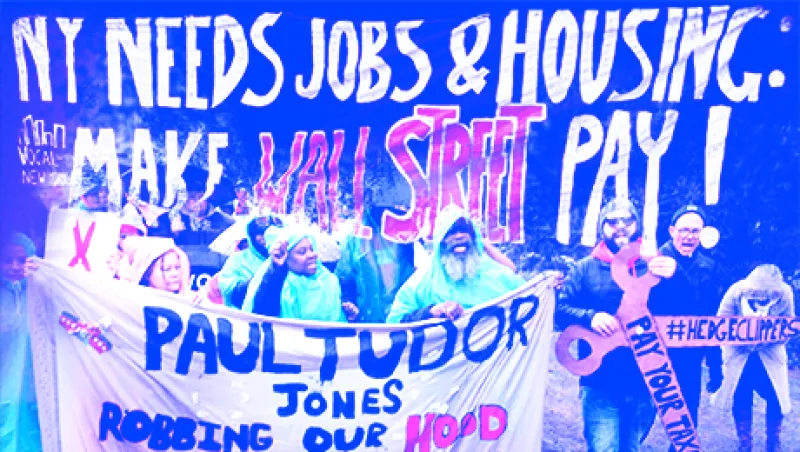
Meet the Hedge Clippers: the Activist Group Targeting Hedge Funds
Backed by unions and other community activists, the Hedge Clippers are taking on income inequality by singling out Paul Tudor Jones, Daniel Loeb and other hedge fund billionaires.
Jess Delaney
April 13, 2015


